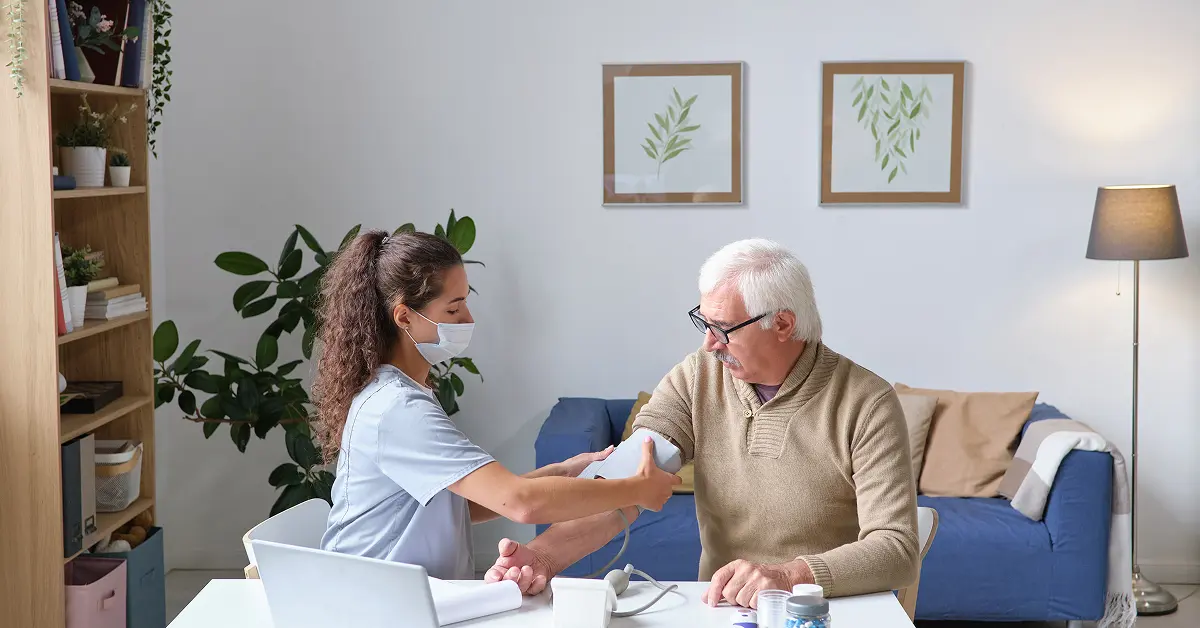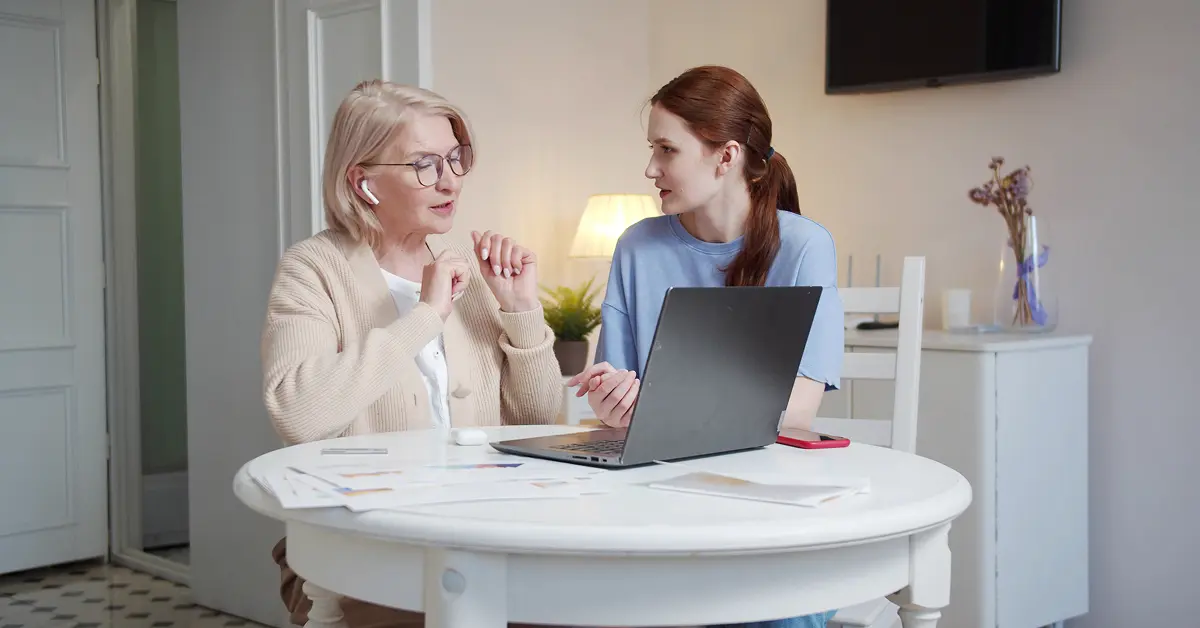India is home to a rapidly growing elderly population. With the traditional joint family structure evolving and more nuclear families becoming the norm, many ageing parents now face the challenge of living alone. In such scenarios, ensuring their safety, health, and emotional well-being becomes a priority for children who may live far away or have demanding work lives.
This is where professional caregivers play a crucial role. Hiring a trained caregiver allows ageing Parent Caregiver to stay in the comfort of their homes while receiving the support they need to remain safe, healthy, and independent.
In this blog, we will explore how caregivers help ageing parents stay at home safely, what services they offer, and how to choose the right caregiver in India.
Understanding the Role of a Caregiver
A caregiver is a trained professional who assists elderly individuals with daily tasks, health management, mobility, hygiene, and emotional support. Depending on the needs of the elderly person, a caregiver may be hired part-time, full-time, or live-in.
In India, caregivers are often employed through home healthcare agencies, NGOs, or independent arrangements. The goal is to allow the elderly to age in place—a concept that supports older adults living in their own homes for as long as safely possible.
Ensuring Physical Safety at Home
One of the biggest concerns with ageing is the risk of falls and accidents, especially in homes that are not elder-friendly. Caregivers play an essential role in preventing these incidents through:
- Monitoring mobility: They assist with walking, using walking aids, and getting up from beds or chairs safely.
- Bathroom assistance: Caregivers help with bathing, dressing, and toileting—areas where falls are common.
- House safety checks: Some caregivers are trained to identify and reduce hazards such as slippery floors, poorly lit staircases, or cluttered hallways.
- Medication reminders: Ensuring timely medication helps prevent health complications that could lead to emergencies.
This constant presence dramatically reduces the chances of unattended accidents at home.
Supporting Daily Living Activities
Many elderly people struggle with Activities of Daily Living (ADLs) such as bathing, dressing, cooking, eating, or cleaning. A caregiver provides hands-on support with:
- Personal hygiene: Helping with grooming, bathing, oral care, and dressing.
- Meal preparation: Cooking healthy, home-style meals suited to the senior’s dietary requirements.
- Housekeeping: Light cleaning, laundry, and organizing essentials.
- Mobility assistance: Helping them move around the house, use wheelchairs or walkers, and exercise safely.
By handling these day-to-day responsibilities, caregivers help seniors maintain dignity and independence.
Managing Chronic Conditions and Medications

Ageing often brings multiple chronic health conditions like diabetes, arthritis, high blood pressure, or heart disease. Elderly individuals may also be on multiple medications.
Caregivers are trained to:
- Monitor vital signs like blood pressure or blood sugar.
- Ensure proper medication management (right dosage and timing).
- Accompany seniors to doctor’s appointments and share medical feedback.
- Alert families and doctors about any signs of deteriorating health.
In some cases, caregivers also work under the supervision of nurses or physiotherapists for specialized home-based care.
Providing Companionship and Mental Well-being
One of the most overlooked but vital aspects of caregiving is emotional support. Many elderly parents suffer from loneliness, especially after the loss of a spouse, limited mobility, or the absence of children who live abroad or in another city.
Caregivers provide:
- Daily conversation and company.
- Emotional reassurance during times of stress or illness.
- Support in hobbies and recreational activities like reading, praying, or gardening.
- Monitoring of mental health issues such as depression, dementia, or anxiety.
This companionship helps improve the senior’s mental well-being and overall happiness.
Encouraging Independence with Support
Contrary to the fear that hiring a caregiver may make an elderly person more dependent, it often does the opposite.
With the right support, seniors can:
- Make decisions for themselves.
- Retain control over their routine.
- Stay active within the limits of their health.
- Continue living in a familiar environment, reducing relocation trauma.
Caregivers empower ageing parents to live life on their terms—with dignity, safety, and comfort.
Reducing Family Caregiver Burnout
In many Indian families, caregiving often falls on the shoulders of a spouse, son, daughter, or daughter-in-law. While done with love, the stress can lead to caregiver burnout, especially when combined with jobs or children to raise.
Hiring a professional caregiver:
- Shares the responsibility.
- Offers peace of mind to family members.
- Ensures the elderly parent is getting skilled attention even when the family is away.
This balance is essential for both the senior and the caregiver family member.
Choosing the Right Caregiver in India
The caregiver market in India is growing, and several agencies now offer verified and trained caregivers for elder care at home. To choose the right one:
- Assess your parent’s needs (medical vs non-medical care).
- Choose a verified caregiver through a reputed agency.
- Check references and background verification.
- Discuss daily duties, language comfort, and cultural fit.
- Conduct a trial period to evaluate compatibility.
Agencies like Portea, Care24, ElderAid, and Emoha offer reliable eldercare services across major Indian cities.
Conclusion
Helping ageing parents stay at home safely is one of the most compassionate things you can do. It respects their desire to live in a familiar space while also ensuring their safety and well-being.
Professional caregivers are not just assistants—they are companions, health monitors, and safety providers who give both elders and their families peace of mind.
As India’s population ages and lifestyles evolve, embracing elder caregiving support is not a sign of neglect—it’s a sign of love, responsibility, and modern care.
Are you considering a caregiver for your elderly parent in India? Don’t wait for a health scare to act. A trained caregiver could be the key to ensuring your loved ones age gracefully at home—safely and with dignity.
Contents
- Understanding the Role of a Caregiver
- Ensuring Physical Safety at Home
- Supporting Daily Living Activities
- Managing Chronic Conditions and Medications
- Providing Companionship and Mental Well-being
- Encouraging Independence with Support
- Reducing Family Caregiver Burnout
- Choosing the Right Caregiver in India
- Conclusion
Our 24*7 services
Latest Posts
- What Is Respite Care and Why Is It Important
- Affordable home care for senior citizens in India
- Caring for Seniors with Dementia or Alzheimer's at Home
- Senior Caregiving A Guide for Every Family
- How to Write a Caregiver Resume That Gets You Hired
- How Care After Hospital Discharge Speeds Up Recovery at Home
- How to Get Home Health Care for Seniors Through Medicare
- What Does a Senior Citizen Caregiver Really Do at Home
- How to Care for Elderly Parents with Alzheimer’s or Dementia
- How to Get 24-Hour Care for Seniors at Home


